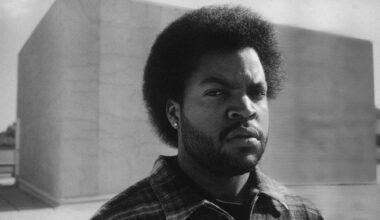Ice Cube is indisputably one of the pioneers of gangsta rap and one of the founding fathers of hip-hop in California. Throughout the 1980s and early 1990s, Ice Cube was the face of LA, and from ‘F**k Da Police’ to ‘No Vaseline’, the Compton rapper was unmatched during his heyday.
As a native of LA’s Crenshaw neighbourhood, the rapper (real name O’Shea Jackson) is very familiar with gang culture, the police and the ever-existent fear of prison. However, in an appearance on Bill Maher’s Club Random podcast, Ice Cube admitted that he believes there is a direct connection between the music industry and law enforcement.
According to the ‘It Was A Good Day’ lyricist, prisons (especially private prisons) benefit from hip-hop music and the way it feeds into crime. The former NWA member even went as far as to state that law enforcement uses rap music to put African-Americans behind bars.
Elaborating on why hip-hop is so crime-orientated nowadays, the rhymer explained, “The narrative is really kind of structured and really made into what the record company wants the record to be.” He continued, “Like follow the money. I don’t know their names, but if you go high enough, you begin to see this is an industry. Let’s take rap music, [The] same people who own the labels own the prisons.”
It has been highlighted before that companies such as The Vanguard Group, Inc. are stakeholders in record labels and private prisons requiring over 90% capacity. Hence people have begun to connect the dots over the years. Highlighting this fact, Cube stated, “It seems really kind of suspicious—if you want to say that word—that the records that come out are really geared to push people toward their prison industry.”
Bill Maher pushed back on Jackson and told him that labels are not forcing any rap artists to write about crime. However, the LA musician asserted that many of the media conglomerates can pick and choose what gets released, divulging, “It’s not about making somebody write the lyrics. It’s about being near as guardrails to make sure certain songs make it through, and certain songs don’t!”
Exposing that executives often coerce their artists to veer towards crime-orientated lyrics, Jackson stated, “Certain flavours are exposed on the record. Some records are made by committees. Meaning record company guys sit around and tell the artists, ‘This is hot. Say that. Do this, we gonna have this guy write lyrics.’” Cube concluded with this premise. However, you can watch the interview in the video below.







